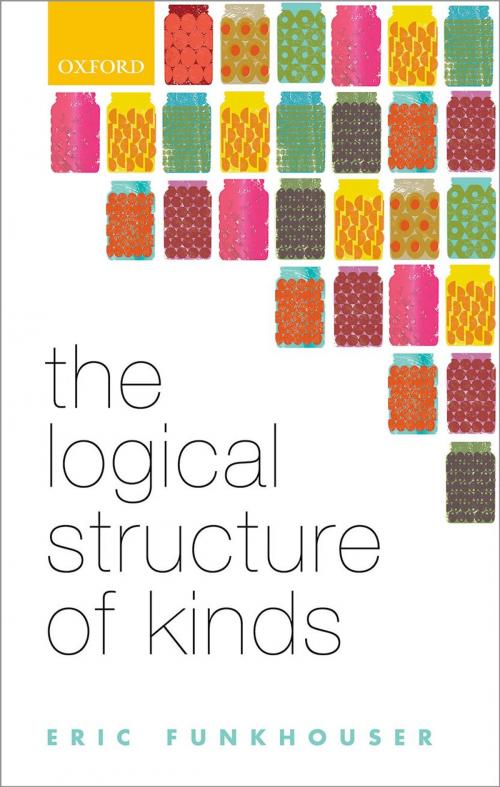The Logical Structure of Kinds
Nonfiction, Reference & Language, Language Arts, Science & Nature, Science, Religion & Spirituality, Philosophy| Author: | Eric Funkhouser | ISBN: | 9780191053283 |
| Publisher: | OUP Oxford | Publication: | July 3, 2014 |
| Imprint: | OUP Oxford | Language: | English |
| Author: | Eric Funkhouser |
| ISBN: | 9780191053283 |
| Publisher: | OUP Oxford |
| Publication: | July 3, 2014 |
| Imprint: | OUP Oxford |
| Language: | English |
Eric Funkhouser uncovers a logical structure that is common to many, if not all, classificatory systems or taxonomies. Every conceptual scheme—including the sciences, mathematics, and ethics—classifies things into kinds. Given their ubiquity across theoretical contexts, we would benefit from understanding the nature of such kinds. Significantly, most conceptual schemes posit kinds that vary in their degree of specificity. Species-genus taxonomies provide us with familiar examples, with the species classification being more specific than the genus classification. This book instead focuses on adjectival kinds—classifications picked out by kind-terms like 'mass', 'shape', or 'belief', to give but a few examples. Some adjectival kinds specify others—for example, scarlet is a specific kind of red. This is an instance of the determinate-determinable relation. One of the fundamental claims of this book is that studying the determination relation provides deep insight into the essences of adjectival kinds and their instances (properties). The determination relation is found to contain two components, which are employed to structure kinds at the same level of abstraction into property spaces. In turn, these property space models lead to a theory for individuating properties, which has profound consequences when it comes to reduction, autonomy, and causation. Determination relations are contrasted with realization relations, the latter being the favored way of understanding how the mental and the physical are related. Particular attention is given to the distinction between multiple realizability and multiple determination, and it is argued that determination and realization are mutually exclusive relations. This has been overlooked in many discussions of multiple realizability, but it is central to maintaining the connection between multiple realizability and autonomy. The claim that multiple realizability entails various senses of autonomy is defended from various reductionist challenges. These theories of determination and realization ultimately provide general standards for establishing the autonomy of the special sciences or, conversely, their reduction.
Eric Funkhouser uncovers a logical structure that is common to many, if not all, classificatory systems or taxonomies. Every conceptual scheme—including the sciences, mathematics, and ethics—classifies things into kinds. Given their ubiquity across theoretical contexts, we would benefit from understanding the nature of such kinds. Significantly, most conceptual schemes posit kinds that vary in their degree of specificity. Species-genus taxonomies provide us with familiar examples, with the species classification being more specific than the genus classification. This book instead focuses on adjectival kinds—classifications picked out by kind-terms like 'mass', 'shape', or 'belief', to give but a few examples. Some adjectival kinds specify others—for example, scarlet is a specific kind of red. This is an instance of the determinate-determinable relation. One of the fundamental claims of this book is that studying the determination relation provides deep insight into the essences of adjectival kinds and their instances (properties). The determination relation is found to contain two components, which are employed to structure kinds at the same level of abstraction into property spaces. In turn, these property space models lead to a theory for individuating properties, which has profound consequences when it comes to reduction, autonomy, and causation. Determination relations are contrasted with realization relations, the latter being the favored way of understanding how the mental and the physical are related. Particular attention is given to the distinction between multiple realizability and multiple determination, and it is argued that determination and realization are mutually exclusive relations. This has been overlooked in many discussions of multiple realizability, but it is central to maintaining the connection between multiple realizability and autonomy. The claim that multiple realizability entails various senses of autonomy is defended from various reductionist challenges. These theories of determination and realization ultimately provide general standards for establishing the autonomy of the special sciences or, conversely, their reduction.















